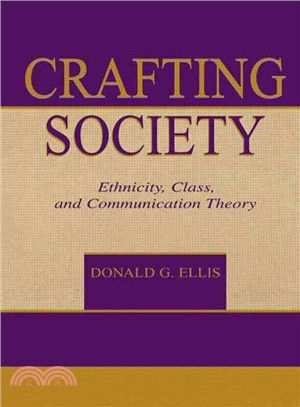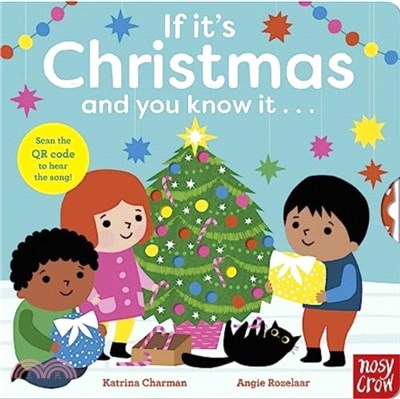Crafting Society ― Ethnicity, Class, and Communication Theory
商品資訊
ISBN13:9780415515641
出版社:Taylor & Francis
作者:Donald G. Ellis
出版日:2011/12/12
裝訂/頁數:平裝/248頁
-
藍思閱讀分級: 1280L
定價
:NT$ 2473 元優惠價
:90 折 2226 元
無庫存,下單後進貨(到貨天數約30-45天)
下單可得紅利積點:66 點
商品簡介
相關商品
商品簡介
The study of communication, language, and discourse is at once simple, elegant, and complex. Each of these areas is informed by "micro" subjective experiences of individuals and the "macro" processes of a culture. Communication itself is thoroughly modern yet it seeks anchorage in the traditions of the humanities and social sciences. All of this creates a significant challenge.
In this monograph, Ellis considers the study of communication as he discusses three key issues in communication theory: (1) the growing emphasis on meaning, (2) the importance of a mediated culture, and (3) the links between micro communication activities and macro social categories such as ethnicity and social class. In response to these three issues, this book deals with the way people use language and communication to construct their world; this world is not constructed purely but is influenced by attitudes, ideologies, and biases. In the modern world the medium of communication has an impact on consciousness and society, and Ellis shows how the media are responsible for some of the fault lines in society. The book also explores principles of medium theory and documents the impact of media on psychological and sociological phenomena. Finally, work of Goffman, Giddens, and Randall Collins is extended to show how micro communication behaviors are implicated in and by social conditions.
ADDITIONAL COPY FOR MAILER
Expanded features:
* The chapters work out a logic connecting real communication patterns with the broad principles upon which societies are explored. Thus the title "Crafting" Society--the crafting is purposefully active to indicate the dynamic processes involved in creating what we call society. Society and culture have their roots and empirical bases in communication; that is, in the daily struggles of interaction.
* Two chapters on two of the most important and controversial issues of the day--ethnicity and class. These two chapters are clear illustrations of the new theoretical principles discussed throughout the book.
* A chapter on social class is very unique for a book devoted to communication processes. Communication theorists do not usually write about class, even though it is a highly symbolic process and rooted in communication patterns. Class is a difficult concept in America since so few people, other than sociologists, care to talk about it.
* A chapter on medium theory takes the bold step of experimenting a little by summarizing basic causal statements and propositions. This device underscores the goal of a theory which is to come to grips with testable statements. The focus is on medium theory and how the media influence consciousness and social structure.
* A unique chapter takes up the issue of how communication processes are constitutive of social structures. It draws on work by Giddens and others to return to a concept of structure based on actions that produce and reproduce structure.
In this monograph, Ellis considers the study of communication as he discusses three key issues in communication theory: (1) the growing emphasis on meaning, (2) the importance of a mediated culture, and (3) the links between micro communication activities and macro social categories such as ethnicity and social class. In response to these three issues, this book deals with the way people use language and communication to construct their world; this world is not constructed purely but is influenced by attitudes, ideologies, and biases. In the modern world the medium of communication has an impact on consciousness and society, and Ellis shows how the media are responsible for some of the fault lines in society. The book also explores principles of medium theory and documents the impact of media on psychological and sociological phenomena. Finally, work of Goffman, Giddens, and Randall Collins is extended to show how micro communication behaviors are implicated in and by social conditions.
ADDITIONAL COPY FOR MAILER
Expanded features:
* The chapters work out a logic connecting real communication patterns with the broad principles upon which societies are explored. Thus the title "Crafting" Society--the crafting is purposefully active to indicate the dynamic processes involved in creating what we call society. Society and culture have their roots and empirical bases in communication; that is, in the daily struggles of interaction.
* Two chapters on two of the most important and controversial issues of the day--ethnicity and class. These two chapters are clear illustrations of the new theoretical principles discussed throughout the book.
* A chapter on social class is very unique for a book devoted to communication processes. Communication theorists do not usually write about class, even though it is a highly symbolic process and rooted in communication patterns. Class is a difficult concept in America since so few people, other than sociologists, care to talk about it.
* A chapter on medium theory takes the bold step of experimenting a little by summarizing basic causal statements and propositions. This device underscores the goal of a theory which is to come to grips with testable statements. The focus is on medium theory and how the media influence consciousness and social structure.
* A unique chapter takes up the issue of how communication processes are constitutive of social structures. It draws on work by Giddens and others to return to a concept of structure based on actions that produce and reproduce structure.
主題書展
更多
主題書展
更多書展今日66折
您曾經瀏覽過的商品
購物須知
外文書商品之書封,為出版社提供之樣本。實際出貨商品,以出版社所提供之現有版本為主。部份書籍,因出版社供應狀況特殊,匯率將依實際狀況做調整。
無庫存之商品,在您完成訂單程序之後,將以空運的方式為你下單調貨。為了縮短等待的時間,建議您將外文書與其他商品分開下單,以獲得最快的取貨速度,平均調貨時間為1~2個月。
為了保護您的權益,「三民網路書店」提供會員七日商品鑑賞期(收到商品為起始日)。
若要辦理退貨,請在商品鑑賞期內寄回,且商品必須是全新狀態與完整包裝(商品、附件、發票、隨貨贈品等)否則恕不接受退貨。
























